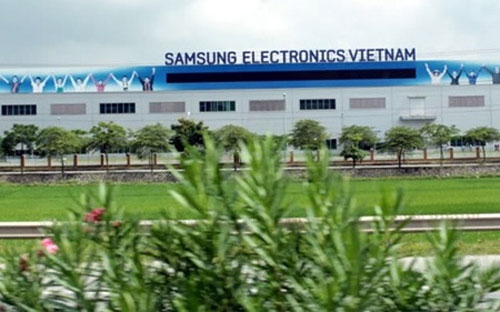|
More FDI enterprises get
customs incentives
Though Samsung Electro-Mechanics
To meet the requirements of customs incentives,
enterprises have to be operational at least two years, or obtain a minimum
annual export turnover of US$50 million (applied to farm produce, seafood,
textile, garment and footwear) and US$200 million (applied to other
products).
The plant to produce and assemble components for
telecom and mobile devices of Samsung Electro-Mechanics Vietnam is under
construction and will come online late this year or early next year. The
electronic device project of Hansol Electronics Vietnam got off the ground
late last year.
The Ministry of Finance has got approval from the Prime
Minister to grant customs incentives to these enterprises given their
commitments and their reputations and as an effort to reduce procedures and offer
incentives for large-scale projects with huge investments and using a large
number of laborers.
The project of Samsung Electro-Mechanics Vietnam worth
US$1.2 billion is being developed at Yen Binh I Industrial Park to provide
products for the hi-tech complex of Samsung Electronics Vietnam Thai Nguyen
(SEVT) specializing in cell phones, smart phones and tablets.
Seung Mo Ryu, general director of Samsung
Electro-Mechanics Vietnam, once said that the project was the company’s
biggest project outside
Enjoying customs incentives, enterprises can conduct
fewer procedures, get tax refunds first and checking later, have goods
cleared quickly and make a single goods declaration system for multiple
exports and imports.
In addition, once
The application of the priority enterprise status
demonstrates a drastic change to the management method of the General
Department of Customs from regarding enterprises as subjects of management to
partners.
According to the post-clearance audit unit under the
department, there have been over 50 countries implementing the priority
enterprise program. Though practices in each country are different, the
common foundation is the SAFE Framework of Standards to Secure and Facilitate
Global Trade built by the World Customs Organization (WCO).
Currently, the customs authorities of 27 countries have
signed the mutual recognition agreements on priority enterprise.
The number of enterprises recognized as priority firms
has reached 26 compared to over 50,000 export and import enterprises
nationwide. Such enterprises are big companies and account for up to 23% of
the country’s total exports and imports.
SGT
|
Thứ Ba, 21 tháng 10, 2014
Đăng ký:
Đăng Nhận xét (Atom)

Không có nhận xét nào:
Đăng nhận xét